The season of Epiphany as a whole concentrates on Jesus’ designation by the Spirit of God as the divine Son who reveals the deepest concerns of his father. Alongside the focus on Jesus, Epiphany underscores the broad scope of God’s revelation. This culminates in the unifying vindication that God wills for the people, which echoes throughout the readings of the Hebrew Bible and the New Testament on this Third Sunday after the Epiphany.
The First Reading
Isaiah 9:1-4
The Oppressed See Vindication
The prophet Isaiah looks back on a time of oppression and uncertainty, when God’s people felt diminished by events that threatened their very existence. The passing of the threat vindicates their persistent trust in God’s promises. A bright future opens before them. Even if all has not yet come to fruition, the way ahead is clear and joyous.
—
- 1. Indeed, there will be no exhaustion for the land that has suffered oppression.
- At the outset, the Lord diminishes the land of Zebulun and the land of Naphtali;
- in the end, the Lord brings honor to the Way of the Sea, Transjordan,
- Galilee of the Nations.
- 2. This people—those walking in darkness—have seen a great light.
- Those dwelling in a land as dark as death—a light has shined on them.
- 3. Have you made the nation greater? No! You have increased the joy.
- They have rejoiced in your presence as with rejoicing at the harvest,
- or as they would celebrate in dividing up spoils of war.
- 4. For their burdensome yoke and the bar on their shoulder,
- the rod of their oppressor, you have shattered—like the Day of Midian!
The Psalm
Psalm 27:1, 4-9
Longing for God’s Presence
God offers security from enemies and from days of trouble. To experience this security, the psalmist longs to dwell in God’s shelter, which is particularly available in the Temple, where the psalmist can offer to God sacrifices and songs of praise. The psalmist hopes for a relationship with God that is reciprocal: to“gaze upon the beauty of the Lord” and to be met with God’s gracious response, in the form of the divine protection the psalmist has heretofore experienced.
—
- Of David.
- 1. The Lord is my light and deliverance—
- whom shall I fear?
- The Lord is the safeguard of my life—
- of whom shall I be frightened?
- 4. One thing I asked of the Lord—
- this I request:
- to dwell in the house of the Lord
- all the days of my life;
- to gaze upon the beauty of the Lord
- and to contemplate God’s temple.
- 5. For God shelters me on a day of trouble,
- hiding me under the cover of God’s tent.
- God sets me high on a cliff!
- 6. Now I will lift my head above my enemies surrounding me.
- In God’s tabernacle I will sacrifice—
- offerings with shouts of joy!
- I will sing and give praise to the Lord with music.
- 7. Hear, Lord, my voice that cries out!
- Be gracious to me and answer me!
- 8. About you my heart says, “Seek my face!”
- Your face, Lord, I seek.
- 9. Do not hide your face from me.
- Do not in anger push your servant aside.
- You have been my helper—
- do not desert or abandon me,
- God of my deliverance.
The Second Reading
1 Corinthians 1:10-18
Against Divisions among Believers
When Paul wrote to communities of believers in Corinth in the middle of the first century, he had heard from the circle of one community leader, a woman named Chloe, about divisions pitting one group against another. He decries this contentiousness as based on partisan loyalties rather than shared fidelity to the gospel. Paul attacks this partisanship with the principle that the universal truth of God’s vindication demands a unified community.
—
Family in faith, I appeal to you by the name of our Lord, Anointed Jesus, that you all speak with one voice, avoid dissensions among you, and be restored in one mind and in one judgment. For it has been spelled out to me by Chloe’s circle that there are quarrels among you, my family in faith. By this I mean that some of you say, “I am Paul’s partisan” or “I am Apollos’ partisan” or “I am Cephas’ partisan” or “I am Anointed’s partisan.” Has the Anointed been carved up? Paul wasn’t crucified for you! Or were you immersed in Paul’s name? I give thanks that I immersed none of you except Crispus and Gaius, lest anyone say you were immersed in my own name—although I did immerse the household of Stephanas. Other than that, I do not remember whether I immersed anyone else. The Anointed, after all, did not commission me to immerse, but to announce victory—not merely with verbal wisdom—so that the Anointed’s cross not be diminished. The word of the cross is, for those who are perishing, foolishness, but to us who are being saved it is God’s power.
The Gospel
Matthew 4:12-23
Jesus’ Appearance in Galilee
Isaiah featured Galilee as part of God’s providential purpose, naming it as the place in which Israel is vindicated from oppression. Matthew’s Gospel takes up this theme, by making Galilee the point of departure for Jesus’ public activity. By citing from the same passage that is this Sunday’s first reading, Matthew relates Jesus’ preaching of God’s kingdom to Isaiah’s forecast of national renewal. In both cases, God’s action on behalf of his people as a whole, despite the modest status of Galilee, lies at the center of attention.
—
When Jesus heard that John had been apprehended, he went away into Galilee. Bypassing Nazareth, he went to and resided in Capernaum by the sea, in the districts of Zebulun and Naphtali, so that what was said through the prophet Isaiah would be fulfilled—when he says, “Land of Zebulun and land of Naphtali, Way of the Sea, beyond Jordan, Galilee of the Nations, the people who dwell in darkness have seen great light, and to those who dwell in the region and shadow of death, light has dawned upon them.” From then Jesus began to announce and to say, “Repent, for the kingdom of the heavens has approached.” And walking by the Sea of Galilee he saw two brothers, Simon called Peter—that is, Rock—and Andrew, his brother, casting a net into the sea, since they were fishers. And he said to them, “Come on, after me, and I will make you fishers of people.” They at once left their nets and followed him. He went on from there and he saw another two brothers, James the son of Zebedee and John, his brother, in the boat with their father Zebedee, preparing their nets, and he called them. They at once left the boat and their father and followed him. And he went around all Galilee, teaching in those synagogues and announcing the message of the kingdom and healing every illness and every ailment among the people.

